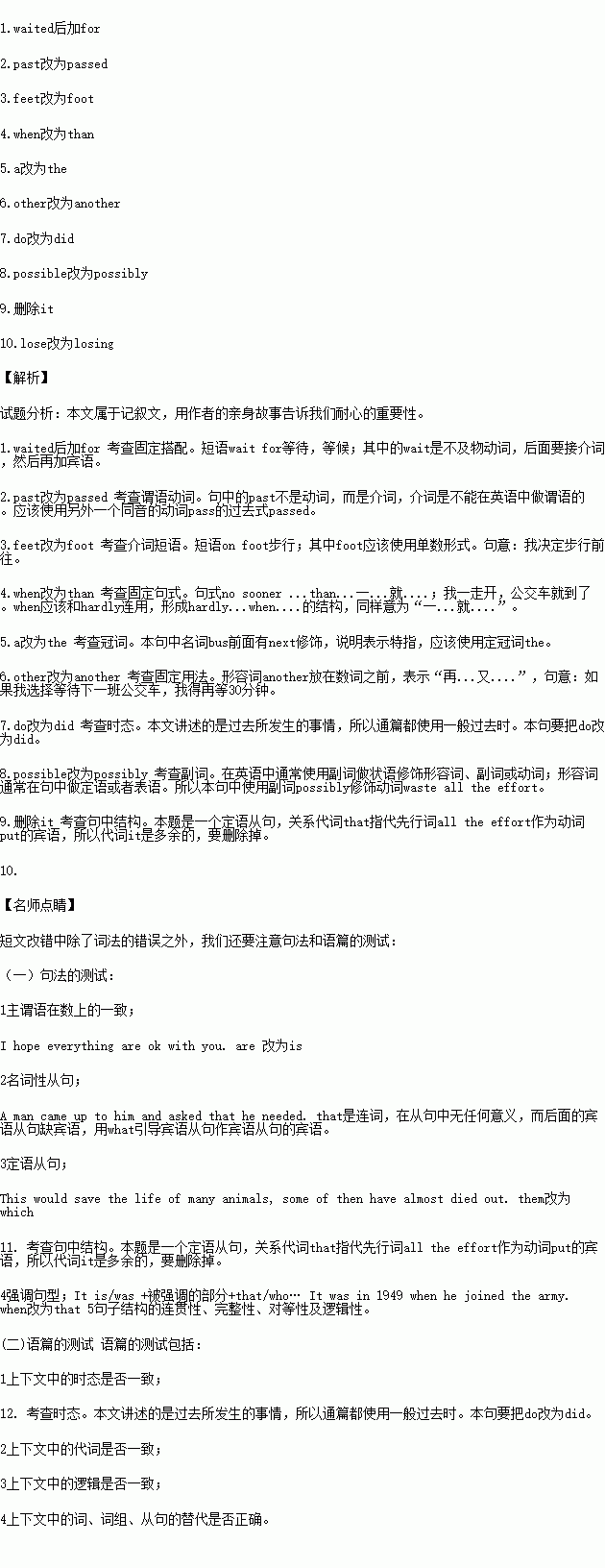��Ŀ����
���ĸĴ�
�ٶ�Ӣ�������ʦҪ��ͬ��֮�佻�������ģ���������ͬ��д���������ġ����й���10������ÿ��������������������漰һ�����ʵ����ӡ�ɾ�����ġ�
���ӣ���ȱ�ʴ���һ��©�ַ���(��)������������д���üӵĴʡ�
ɾ�����Ѷ���Ĵ���б��(��)������
�ģ��ڴ��Ĵ��»�һ���ߣ����ڸô�����д���ĺ�Ĵʡ�
ע�⣺
1��ÿ���������ľ�����һ�ʣ�
2��ֻ������10��������(�ӵ�11����)���Ʒ֡�
Patience is of great importance in our daily life. Once I waited a bus to come at a stop. 30 minutes past, but no bus came. Both upset and annoyed, I decided to walk on feet. But no sooner had I left when the bus arrived. I thought if I had waited for one more minute, I would have caught it. If I chose to take a next bus, I would have to wait for other 30 minutes. Only then do I realize my problem. Being impatient will possible waste all the effort that we have put it in. Now whenever I am close to lose my patience, I��ll think of this experience.
 Сѧ��10���ӿ������100��ϵ�д�
Сѧ��10���ӿ������100��ϵ�д�
